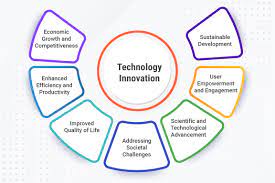Exploring Artificial Intelligence Services: Transforming the Future of Business
Artificial Intelligence (AI) has rapidly evolved from a futuristic concept to a transformative force in various industries. AI services are now integral to business strategies, offering innovative solutions that enhance efficiency, improve customer experiences, and drive growth. This article delves into the world of AI services and their impact on modern businesses.
Understanding Artificial Intelligence Services
AI services encompass a wide range of applications that leverage machine learning, natural language processing, computer vision, and other advanced technologies. These services are designed to automate tasks, analyse vast amounts of data, and provide actionable insights. Businesses across sectors such as healthcare, finance, retail, and manufacturing are increasingly adopting AI to stay competitive.
Key Benefits of AI Services
- Enhanced Efficiency: AI automates repetitive tasks, freeing up human resources for more strategic activities. This leads to increased productivity and reduced operational costs.
- Data-Driven Insights: AI analyses large datasets quickly and accurately, providing businesses with valuable insights that inform decision-making and strategy development.
- Improved Customer Experience: Through personalised recommendations and responsive customer service chatbots, AI enhances user experience by meeting individual customer needs effectively.
- Innovation: AI enables the development of new products and services by identifying market trends and consumer preferences through predictive analytics.
Popular AI Services in Use Today
The application of AI spans numerous areas. Some popular services include:
- Chatbots: These virtual assistants provide instant customer support around the clock, handling queries efficiently without human intervention.
- Predictive Analytics: By analysing historical data patterns, predictive analytics helps businesses forecast future trends and make informed decisions.
- NLP (Natural Language Processing): NLP allows machines to understand human language, enabling voice-activated assistants like Siri or Alexa to interact naturally with users.
- Computer Vision: Used in quality control processes or autonomous vehicles, computer vision technology interprets visual information from the world around us.
The Challenges Ahead
The adoption of AI services is not without its challenges. Concerns about data privacy, ethical use of technology, and potential job displacement must be addressed responsibly. Businesses need to implement robust security measures while ensuring transparency in how AI systems operate.
The Future of AI Services
The future holds immense potential for artificial intelligence as it continues to evolve at an unprecedented pace. As more businesses embrace digital transformation initiatives powered by AI technologies like quantum computing or edge computing solutions will emerge further enhancing capabilities across industries worldwide.
The integration between humans & machines promises exciting possibilities where collaboration leads towards greater innovation ultimately reshaping our world positively!
Conclusion
The advent of artificial intelligence marks a significant milestone in technological advancement offering unparalleled opportunities for growth & improvement within organisations globally! Embracing these changes proactively ensures success amidst evolving landscapes driven by cutting-edge innovations paving way brighter tomorrow today!
7 Essential Tips for Effectively Implementing AI Services in Your Organisation
- Understand the capabilities and limitations of AI services before implementing them.
- Ensure data privacy and security measures are in place when using AI services.
- Regularly update and maintain AI models to improve performance and accuracy.
- Provide adequate training to users interacting with AI services for optimal utilization.
- Monitor the ethical implications of AI services to prevent bias or discrimination.
- Integrate AI services seamlessly with existing systems for efficient operations.
- Stay informed about latest advancements in AI technology to leverage new opportunities.
Understand the capabilities and limitations of AI services before implementing them.
Before implementing artificial intelligence services, it is crucial to have a clear understanding of their capabilities and limitations. AI can offer remarkable benefits, such as automating complex tasks, providing predictive analytics, and enhancing customer interactions. However, it is not a one-size-fits-all solution and may not be suitable for every business challenge. AI systems require quality data to function effectively and may struggle with tasks that require human intuition or empathy. Additionally, the implementation of AI can involve significant costs and require changes in existing workflows. By thoroughly understanding what AI can and cannot do, businesses can set realistic expectations, avoid potential pitfalls, and leverage AI technologies more effectively to achieve their strategic goals.
Ensure data privacy and security measures are in place when using AI services.
When implementing artificial intelligence services, it is crucial to prioritise data privacy and security to maintain trust and comply with legal regulations. AI systems often handle sensitive information, making them potential targets for cyber threats. To safeguard this data, businesses must employ robust encryption methods, regularly update security protocols, and conduct thorough audits to identify vulnerabilities. Additionally, ensuring compliance with data protection laws such as the General Data Protection Regulation (GDPR) is essential to avoid legal ramifications and protect users’ rights. By establishing comprehensive privacy measures, organisations can confidently leverage AI technologies while maintaining the integrity and confidentiality of their data.
Regularly update and maintain AI models to improve performance and accuracy.
Regularly updating and maintaining AI models is crucial for enhancing their performance and accuracy. As the data landscape continuously evolves, AI models need to adapt to new patterns and information to remain effective. Regular updates ensure that models are not only reflecting the latest data but also learning from any changes in user behaviour or market trends. Maintenance involves fine-tuning algorithms, addressing any biases, and integrating feedback to optimise functionality. By keeping AI models current, businesses can ensure they are making informed decisions based on accurate insights, ultimately leading to improved outcomes and competitive advantage.
Provide adequate training to users interacting with AI services for optimal utilization.
Providing adequate training to users interacting with AI services is crucial for optimal utilisation and maximising the benefits of these advanced technologies. As AI systems become increasingly integrated into business operations, it is essential that users understand how to effectively interact with them. Proper training ensures that users can navigate AI interfaces confidently, interpret outputs accurately, and make informed decisions based on AI-generated insights. Additionally, well-trained users are more likely to trust and embrace AI solutions, leading to smoother implementation and greater overall efficiency. By investing in comprehensive training programmes, organisations can empower their workforce to leverage AI capabilities fully, enhancing productivity and driving innovation across the board.
Monitor the ethical implications of AI services to prevent bias or discrimination.
Incorporating artificial intelligence services into business operations requires a vigilant approach to ethical considerations, particularly to prevent bias or discrimination. As AI systems often learn from existing data, they can inadvertently perpetuate or even exacerbate existing biases present in that data. This can lead to unfair treatment of certain groups and undermine trust in AI solutions. To mitigate these risks, it is crucial for organisations to monitor and evaluate the ethical implications of their AI implementations continuously. This involves conducting regular audits of AI algorithms, ensuring diverse and representative datasets are used for training, and fostering a culture of transparency and accountability within the organisation. By prioritising ethical oversight, businesses can harness the power of AI responsibly while promoting fairness and inclusivity.
Integrate AI services seamlessly with existing systems for efficient operations.
Integrating AI services seamlessly with existing systems is crucial for ensuring efficient operations within any organisation. By embedding AI technologies into current workflows and infrastructure, businesses can enhance their processes without disrupting established practices. This integration allows for the automation of routine tasks, improved data analysis, and more informed decision-making, all while maintaining the continuity of operations. Moreover, a seamless integration minimises the learning curve for employees and maximises the return on investment by leveraging existing resources more effectively. As a result, organisations can enjoy the benefits of AI-driven insights and efficiencies without the need for extensive overhauls or disruptions to their daily activities.
Stay informed about latest advancements in AI technology to leverage new opportunities.
Staying informed about the latest advancements in AI technology is crucial for businesses looking to leverage new opportunities and maintain a competitive edge. The field of artificial intelligence is rapidly evolving, with breakthroughs and innovations emerging regularly. By keeping abreast of these developments, businesses can identify new applications and tools that could enhance their operations, improve efficiency, or open up entirely new markets. Whether it’s through subscribing to industry publications, attending conferences, or participating in webinars and workshops, staying updated ensures that organisations are well-positioned to integrate cutting-edge technologies into their strategies. This proactive approach not only helps in capitalising on AI advancements but also prepares businesses to adapt swiftly to changes in the technological landscape.






